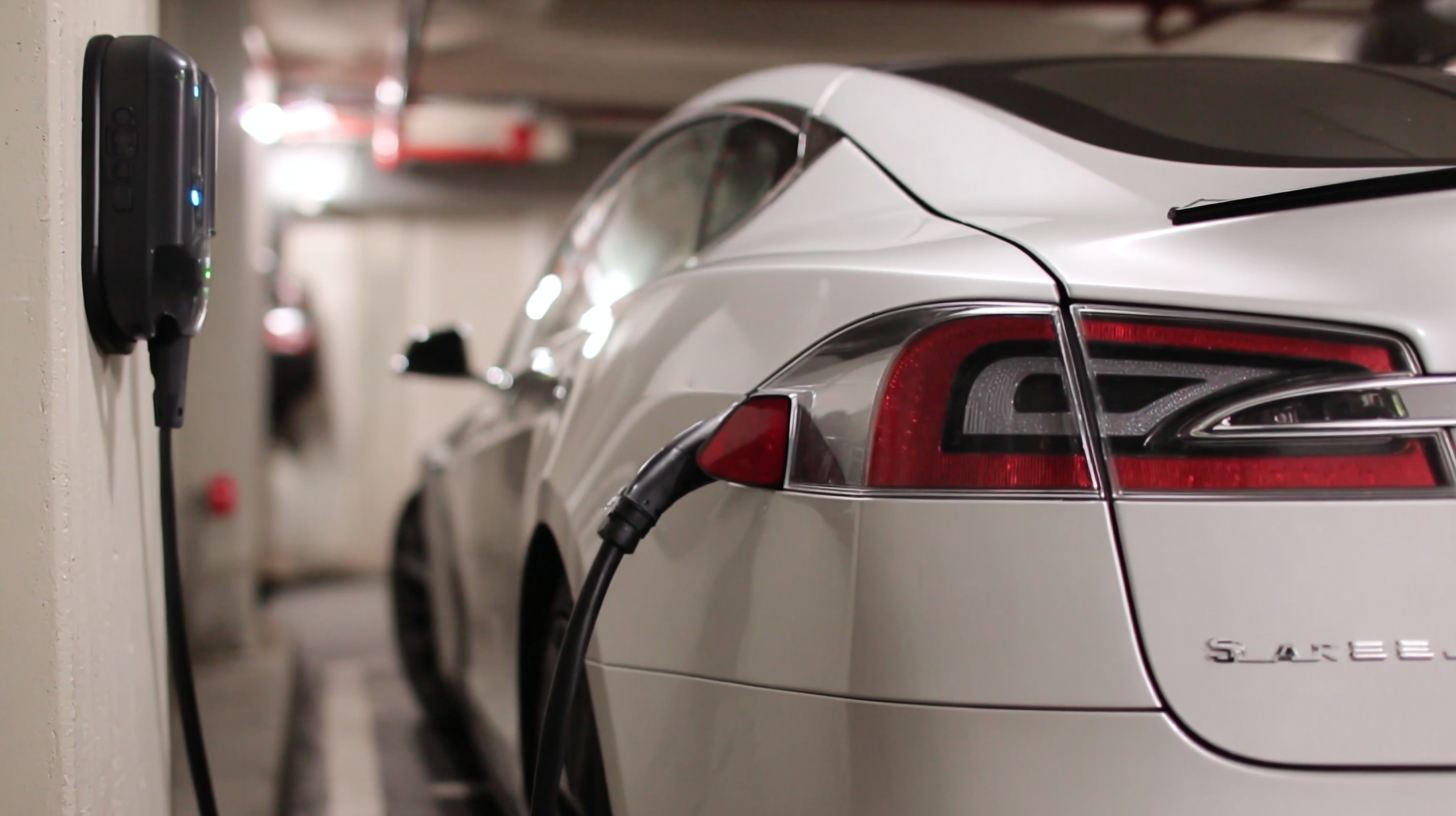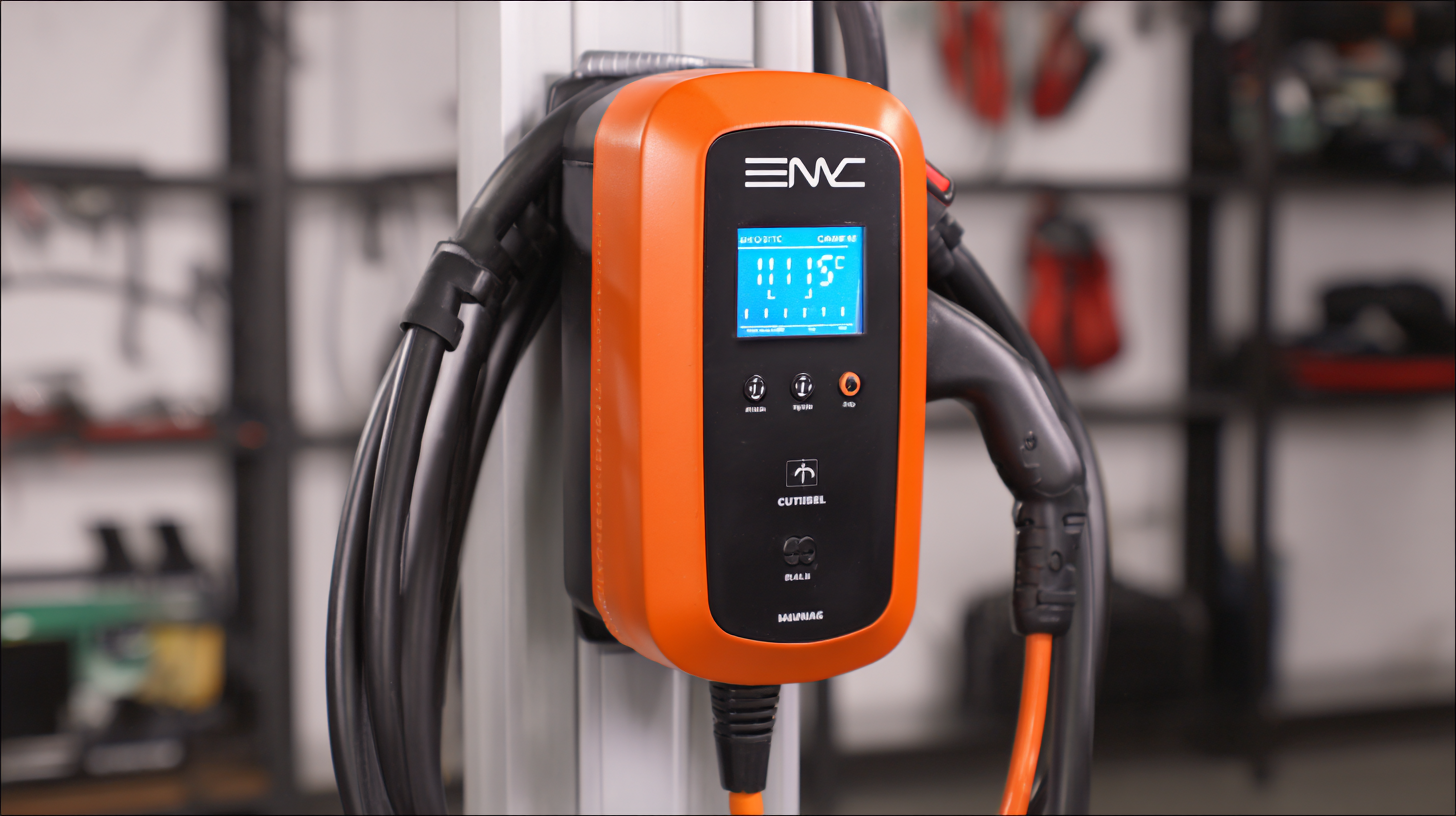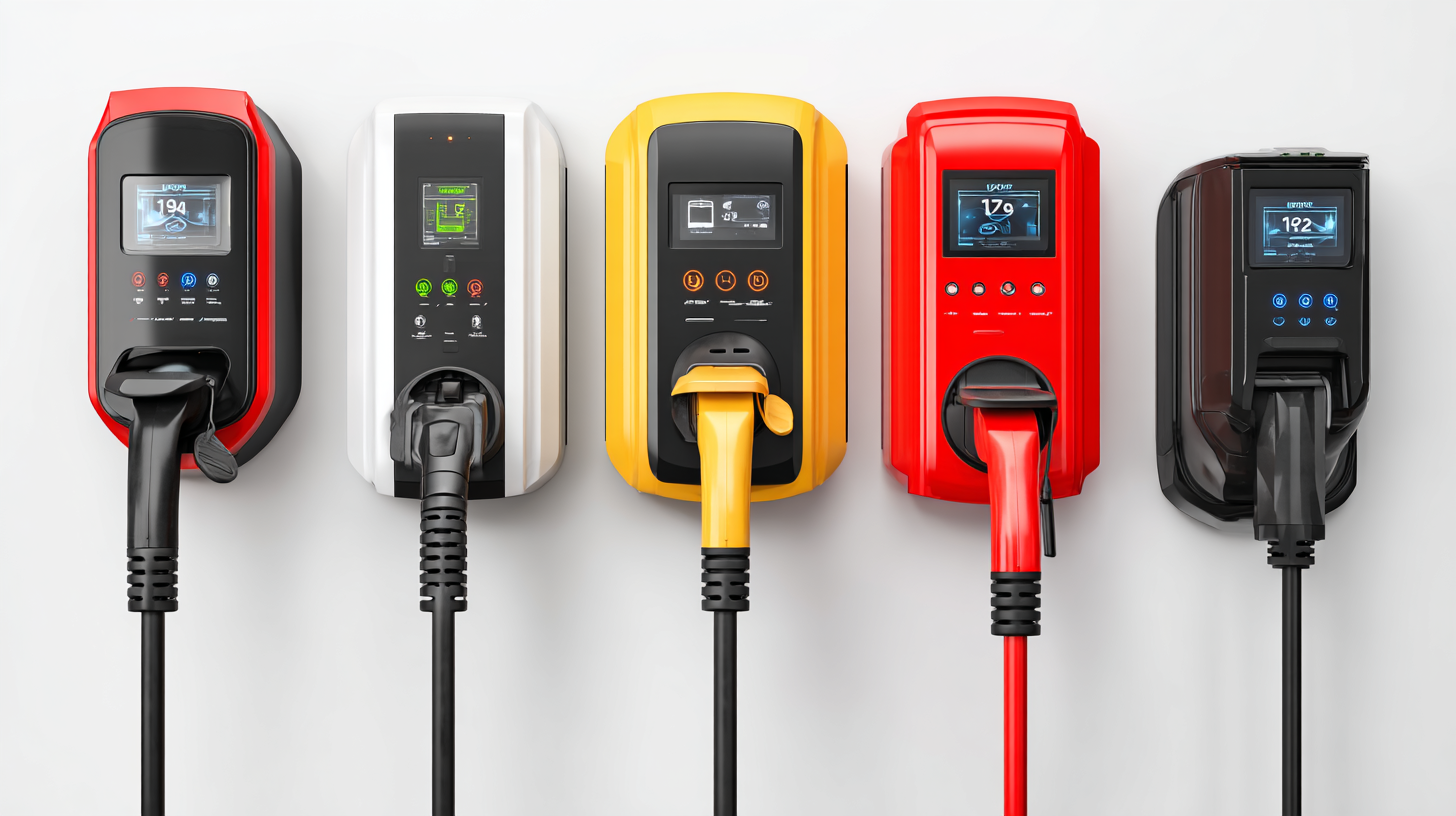Comprehensive Guide to Choosing the Right Electric Car Charger: Types, Features, and Applications
 As electric vehicles continue to gain popularity, the importance of selecting the right electric car charger cannot be overstated. With various types available on the market, understanding the key features and applications of each is crucial for both new and experienced EV owners. This comprehensive guide aims to navigate you through the different charging options, focusing on the essential aspects to consider when you decide to install electric car charger units at home or in public spaces.
As electric vehicles continue to gain popularity, the importance of selecting the right electric car charger cannot be overstated. With various types available on the market, understanding the key features and applications of each is crucial for both new and experienced EV owners. This comprehensive guide aims to navigate you through the different charging options, focusing on the essential aspects to consider when you decide to install electric car charger units at home or in public spaces.
Additionally, we'll explore the advantages of after-sales service and maintenance costs associated with different chargers, ensuring that you make an informed choice that not only enhances your driving experience but also aligns with future trends in electric mobility. Whether you're looking for a fast charger for convenience or a more economical option, our insights will help you choose wisely.
Benefits of Exceptional After-Sales Service for Electric Car Charger Owners
When investing in an electric car charger, the importance of exceptional after-sales service cannot be overstated. A recent survey conducted by the Electric Vehicle Charging Association found that 78% of electric vehicle (EV) owners consider after-sales support critical when selecting a charger. This emphasizes the need for manufacturers to provide robust customer service, including installation assistance, troubleshooting, and maintenance guidance. Such support can significantly enhance the user experience and ensure that owners are not left in the dark about how to efficiently use their charging equipment.
Moreover, exceptional after-sales service can lead to increased customer loyalty and repeat business. According to a report by J.D. Power, 64% of EV owners indicated they are likely to recommend a brand whose service they had a positive experience with. This not only affects potential sales but also reinforces a brand's reputation in a growing market. As more consumers transition to electric vehicles—with projections estimating that EV sales could reach 40% of total automotive sales by 2030—after-sales service will become a vital cornerstone for manufacturers looking to thrive in this competitive landscape.
Understanding Maintenance Costs: What to Expect with Electric Car Chargers
When selecting an electric car charger, maintenance costs are a crucial factor often overshadowed by the initial purchase price. Typically, maintenance expenses can vary based on the charger type and usage. For home charging stations, the maintenance is generally minimal, requiring just occasional inspection of the electrical connections and ensuring that the charging cable is in good condition. However, if you opt for a public charging station, more rigorous maintenance may be involved due to higher usage rates and exposure to environmental factors.
Additionally, understanding the warranty and service agreements associated with your charger can also impact long-term costs. Many manufacturers offer warranties that cover defects and performance issues for several years. Knowing what is included in these warranties, along with the potential costs of repairs or replacements outside of this coverage, can provide clarity in budgeting for your electric vehicle's charging needs. Being proactive about maintenance not only enhances the lifespan of the charger but also ensures optimal performance, potentially saving you money in the long run.

Choosing the Right Electric Car Charger: Impact on Long-Term Maintenance
When considering the purchase of an electric vehicle (EV), the choice of charger can significantly impact long-term maintenance and operational efficiency. As highlighted in a recent analysis, challenges related to electric vehicle charging station infrastructure—including range anxiety and the risk of encountering issues during charging sessions—must be addressed. Research indicates that electric car owners experience charging problems in 20% of their public sessions, underscoring the importance of selecting a reliable charger that is compatible with the growing network of charging stations.
Additionally, the total cost of ownership plays a crucial role in the long-term viability of EVs. Battery replacement costs can be extremely high, leading many potential buyers to hesitate. However, with advancements in battery technology and an increasing number of charging options becoming available, the benefits of owning an electric car are becoming more pronounced. The average range of electric cars currently sits at 236 miles, which is considerably higher than many drivers typically travel in a week, suggesting that the accessibility of charging infrastructure can alleviate range concerns and contribute to a more sustainable driving experience.
Comprehensive Guide to Choosing the Right Electric Car Charger
| Charger Type | Charging Speed | Typical Use Case | Installation Location | Cost Range |
|---|---|---|---|---|
| Level 1 Charger | 2-5 miles/hour | Home Charging | Residential | $300 - $600 |
| Level 2 Charger | 10-60 miles/hour | Home and Public Charging | Residential, Commercial | $600 - $1,200 |
| DC Fast Charger | 100-300 miles/hour | Long-Distance Travel | Public Charging Stations | $15,000 - $40,000 |
| Wireless Charger | Varies | Convenient Parking | Residential, Commercial | $3,000 - $8,000 |
Common Repairs for Electric Car Chargers: Insights and Cost Implications
When considering the common repairs needed for electric car chargers, it's essential to understand both the types of issues that can arise and their cost implications. Electric vehicle chargers are pivotal in the transition to green mobility, as showcased by Norway's leadership in EV adoption. As demand for electric vehicles continues to grow, infrastructure, particularly charging stations, becomes critical. Many chargers face wear and tear and sometimes fail to deliver the necessary power due to faults in the wiring, connectors, or electronic components. Regular maintenance can help mitigate these issues, ensuring the longevity and reliability of charging stations.

Tips:
1. Regularly check the charging cables and connectors for any signs of wear or damage, as these are common failure points.
2. Invest in a high-quality charger that comes with a warranty; this can save on repair costs if issues arise.
Furthermore, understanding consumer sentiment plays a vital role in shaping the EV charging market. A recent survey highlighted the importance of ease of access and cost-effectiveness in influencing consumer choices. Properly functioning chargers not only enhance user experience but also support the larger goal of decarbonizing transportation.
Tips:
1. Consider installing a charger with smart technology that provides diagnostics, helping you identify potential issues before they become costly repairs.
2. Explore local incentives or programs aimed at enhancing EV infrastructure, as they can alleviate some of the financial burdens associated with charger installation and maintenance.
Maximizing Your Investment: How After-Sales Support Enhances Charger Longevity
When investing in an electric car charger, many buyers overlook the importance of after-sales support, which can significantly influence the longevity and efficiency of their charging solution. With the automotive market evolving and competition intensifying, manufacturers must focus not just on the sale itself, but on the entire customer journey post-purchase. Comprehensive after-sales services, such as regular maintenance, troubleshooting assistance, and updates, can ensure that the electric car charger functions optimally over its lifespan.
Moreover, enhanced customer support can lead to increased customer satisfaction and loyalty, ultimately maximizing the value of the investment. With the right after-sales support, customers are more likely to experience longer-lasting performance from their chargers, reducing the likelihood of costly repairs or replacements. Automakers who prioritize this aspect can differentiate themselves in a crowded market by fostering trust and building lasting relationships, resulting in an overall superior ownership experience for electric vehicle owners.
Electric Car Charger Types Comparison
This chart illustrates the charging speed of different types of electric car chargers, showcasing how they compare in terms of miles of range gained per hour. Understanding these differences can help users select the most suitable charger for their electric vehicle needs.
